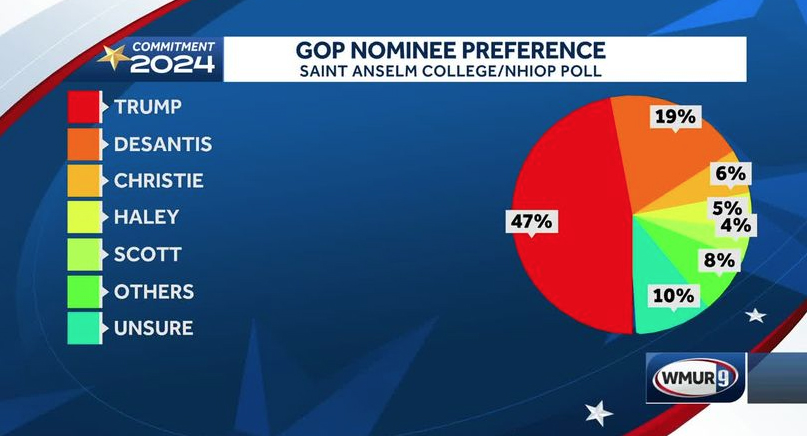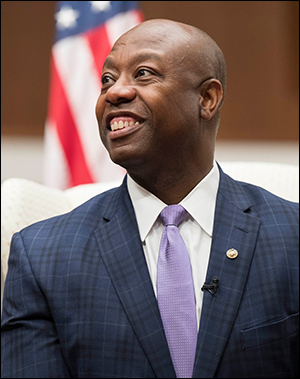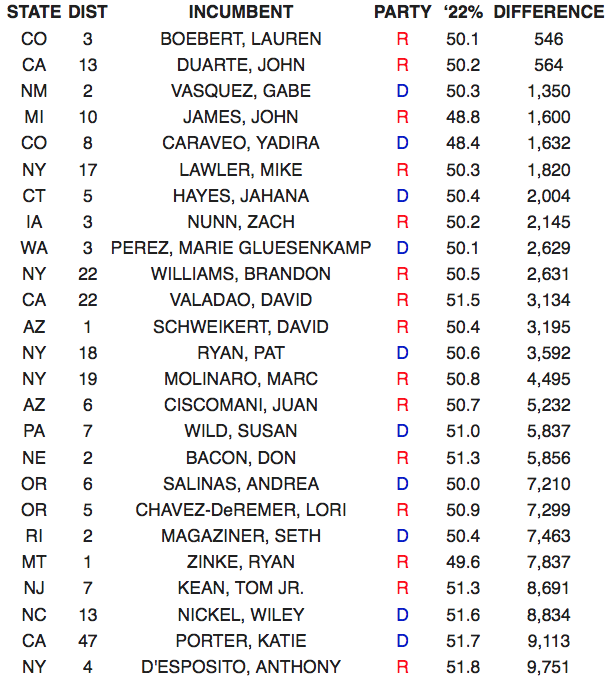By Jim Ellis — Friday, May 24, 2024
Senate
Polling: Potential Split Tickets in AZ, NV — Two new surveys find Democratic Senate candidates pulling away from their presumed Republican opponents in two southwestern swing states while former President Donald Trump continues to lead within the same polling samples.Phoenix-based Noble Predictive Insights (May 7-14; 1,003 registered Arizona voters; online) finds Rep. Ruben Gallego (D-Phoenix) maintaining a double-digit lead, 46-36 percent, over Republican former news anchor and 2022 gubernatorial nominee Kari Lake. Yet, on the presidential ballot test, former President Trump holds a 43-36-8-2-1 percent advantage over President Joe Biden, Robert F. Kennedy Jr. (I), Jill Stein (Green), and Dr. Cornel West (I).
In Nevada, we see a similar pattern. Mainstreet Research, polling for Florida Atlantic University (May 19-21; 522 registered Nevada voters; interactive voice response system & online), finds Sen. Jacky Rosen (D) leading Republican Sam Brown, 48-37 percent. When turning to the presidential contest, however, the results flip. According to this data, Trump would hold a 44-40-9 percent advantage over Biden and Kennedy. Both the most recent Arizona and Nevada polling results suggest that each electorate could engage in ticket splitting for the top two offices on their respective ballots.
House
SCOTUS: Overturns South Carolina Lower Court’s Redistricting Ruling — On a 6-3 vote, the United States Supreme Court overturned the lower court ruling that declared South Carolina’s 1st Congressional District (Rep. Nancy Mace — R-Charleston) as a racial gerrymander. Writing for the majority, Justice Samuel Alito stated that the lower court’s ruling saying race had been the predominate factor in drawing the 1st District was “clearly erroneous,” according to the Daily Kos Elections site analysts. Therefore, the current South Carolina map will stand.
The state had already proceeded under the current lines since the high court’s decision came after the candidate filing deadline. Therefore, the current campaigns will continue along their present path.
This decision could well affect the Louisiana case, which the high court stayed. The lower court had overturned the Louisiana legislature’s original map as a racial gerrymander. The appellate court then reversed the ruling, but the Supreme Court stayed that decision. It is possible the stay was ordered because the court was making an important ruling on the South Carolina case, and that decision could again change the Louisiana situation.
CA-41: Rep. Calvert in Dead Heat — Veteran Rep. Ken Calvert (R-Corona) is again in a highly competitive race with his 2022 opponent, former federal prosecutor Will Rollins (D). The Rollins campaign just released the results of their latest internal poll from David Binder Research (May 1-6; 600 likely CA-41 general election voters; live interview & text). According to the ballot test, Rollins would hold a slight one-point lead, 45-44 percent, over Rep. Calvert. Both candidates see 31 percent of their support being recorded as definite, while 14 percent of Rollins’ voters say they could change their vote, as do 13 percent of Calvert voters.
While the polling is virtually even, the all-party jungle primary results gave Rep. Calvert a 53-38 percent advantage from 162,066 individuals who voted. The FiveThirtyEight data organization rates CA-41 as R+7.
SC-1: Rep. Mace Leads in Two Polls — While the US Supreme Court was ruling on the legality of the state’s 1st Congressional District, a new Republican primary poll was simultaneously released. Emerson College (May 19-21; 400 likely SC-1 Republican primary voters; multiple sampling techniques) publicized their new data results that post incumbent Rep. Nancy Mace (R-Charleston) to a 47-22 percent advantage over her principal challenger, former Haley Administration official and previous gubernatorial candidate Catherine Templeton. A third candidate, non-profit executive Bill Young, attracted seven percent of the vote.
The results are similar to a recent Kaplan Strategies survey (May 6-7; 343 likely SC-1 Republican primary voters; online & text) that produced a Mace lead of 43-21-3 percent.
The South Carolina primary is June 11. If no one reaches majority support, and neither poll shows Rep. Mace winning outright, the top two finishers will advance to a June 25 runoff election.







